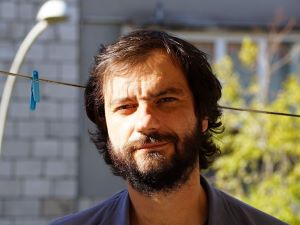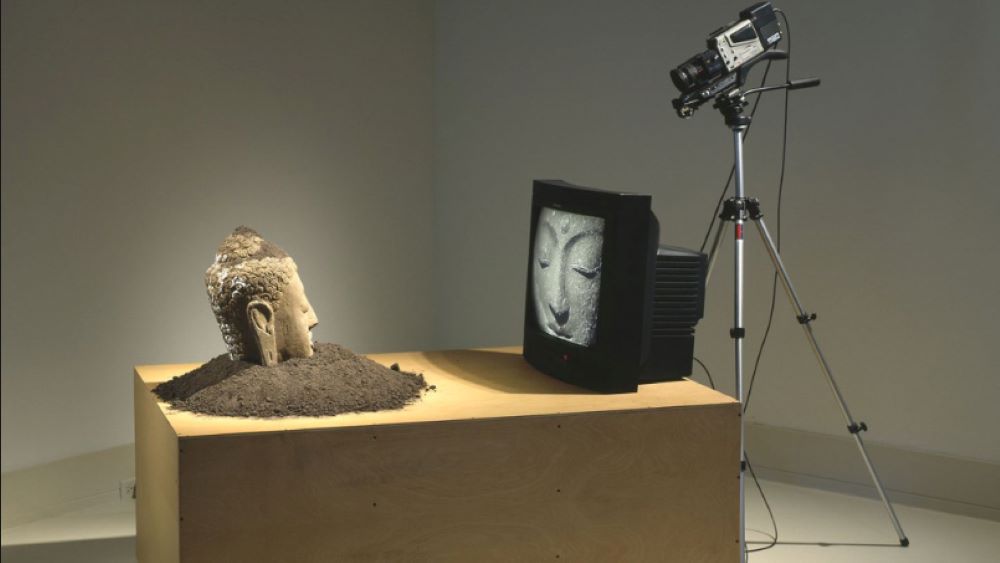No one comes out of a web-discussion being any wiser, like after reading a book. No one comes out of a web-discussion more relaxed, like after having good sex. You leave a web-discussion tired, with a feeling of dependence. That is our vicinity.

Brano Mandic
I have to peep about the digital vicinity, which is turning into slavery. I owe my path towards awareness to famous theorists, such as Paul Virilio, but also to new rebels, digestible critics of the Internet, like Andrew Keen. When I trace the arc from Virilio’s “information bomb” to, say, Keen’s lament over the shattered dreams of the web, I reach anxiety, which more and more people are feeling.
Let the past elections in Montenegro be a banal example. Like any previous ones, they brought a sea of information and opinions that make one feel sick. It is impossible to think when under such a stampede of stimuli. Graphs, figures, reports, statements and pamphlets collided in hyperspace and time of some sort of internal millisecond. What should I even think in a vicinity like that? How can you even think, when everyone has a solution, a tip, proof? How is it that from being a consumer, I became a participant, that is, a prosumer? What even is a prosumer?
I believe many are disturbed by the power of social media and the demonic potential of a trifling like or sad-face-emoji. Prosumers are exactly those disturbed people, under constant pressure, poor people in a vortex who not only buy information but are forced to obsessively think and react to it. So, today, more or less everyone is a prosumer.
My personal position is somewhat better because I’m at least getting paid for thinking of wise things to say. But the real prosumer is a victim of the permanent survey that capital conducts through new technological networks. They are bombarded with so many conflicting opinions, images, advertisements, queries and schemes on the daily, creating the urge in the poor man to define oneself through skilfully designed tools. Robots then sort all these opinions into files, on the basis of which the market is later oriented, economic decisions are made, all under the influence of economic and political cliques.
“Repressive forces do not prevent people from expressing themselves, but force them to express themselves,” says Gilles Deleuze. Then he continues: “What a relief it is to have nothing to say, the right to say nothing.”
I’m not an expert on this particular French man, but I really liked the above thesis. I am even free to fantasize in that direction, imagining that every company, political party or government bureau must have a person completely excluded from the digital environment. Someone who renounced the virtual world of alarm. Those “offline advisors” would be a kind of info-clear, a special caste vowed to informational celibacy, individuals who sacrifice being informed in order to have a different insight into reality. They might reach what Deleuze calls a vacuole, a certain form of non-communication, or a switch, that is, a state of consciousness that would finally give birth to a new thought and truly convey a message in a world that has turned messages into commodities.
Paradoxically, then, in order to get away from control, we have to disconnect from time to time, look from afar, gain insight into a reality that does not rely on the government of the web and the binary code of political strife. Because that kind of linear exclusivity and debating jagma actually maintains the status quo.
No one comes out of a web-discussion being any wiser, like after reading a book. No one comes out of a web-discussion more relaxed, like after having good sex. You leave a web-discussion tired, with a feeling of dependence, which is then fed by returning to the tape loop of an endless flow of information.
Let’s say that all this I’m talking about is called hyperinformation, and let’s say it’s like hypervitaminosis. So, it is harmful. If it is medicinal to drink lemonade, my dear prosumers, it is not healthy to eat three kilos of kiwi.
After an election or similar media trauma experienced by an entire community, perhaps it would be worthwhile to listen to the voices of those who still communicate on a pre-smartphone level. Provided that there are still some. The thoughts of those mythical ones would not be supreme, but it could be an important voice, with an inevitable distance that is needed to think socially.
Brano Mandić, writer and columnist
Illustration: Teodora Nikčević, “There will be no other end of the world”, spatial installation, 2018.



Leave A Comment